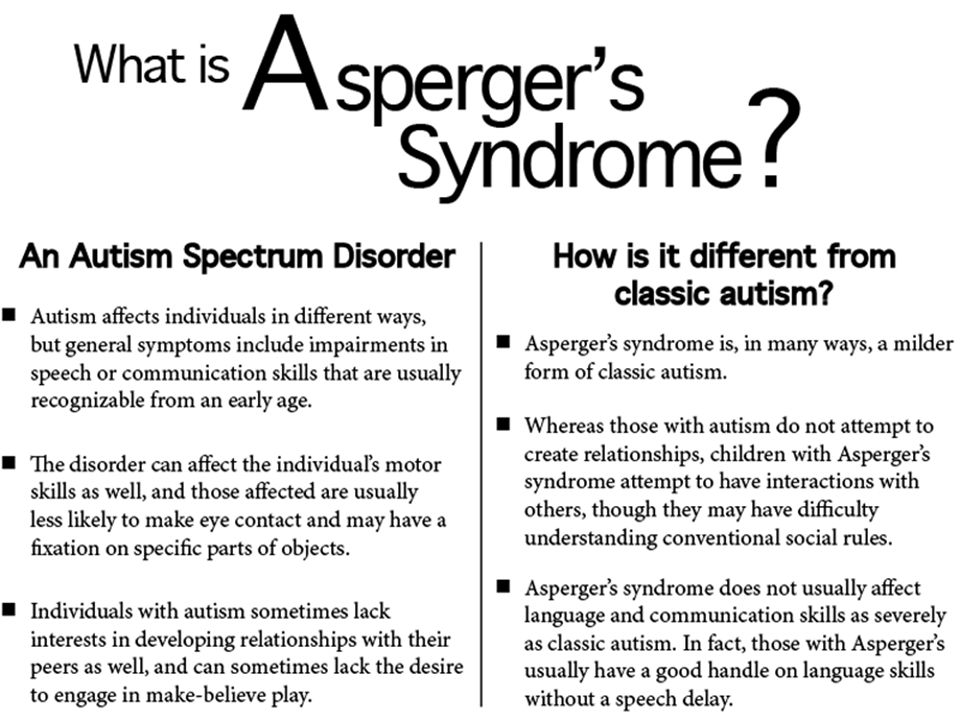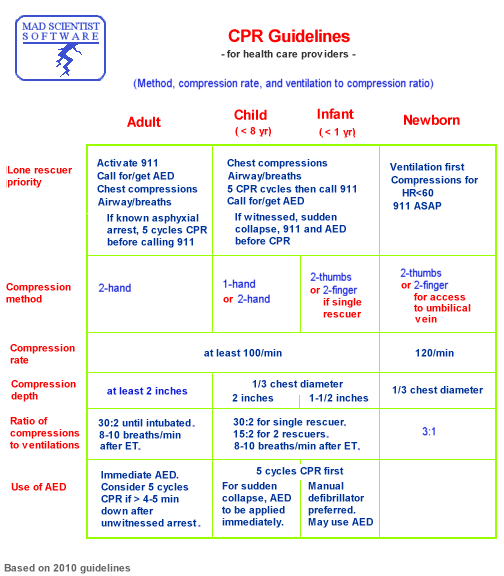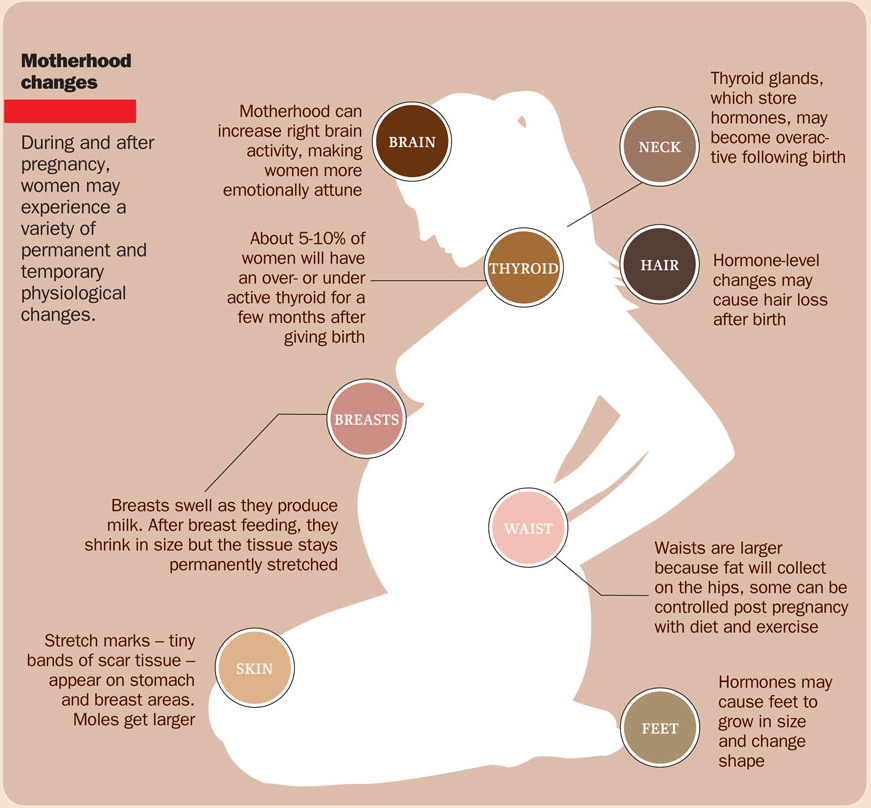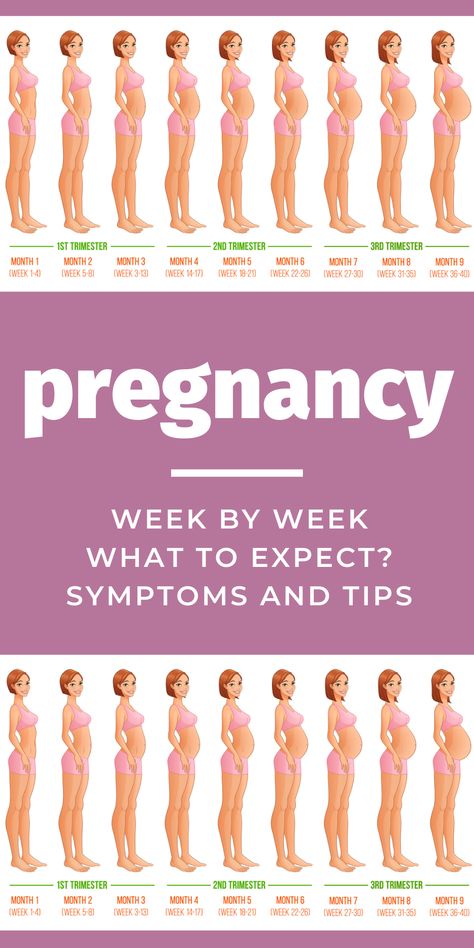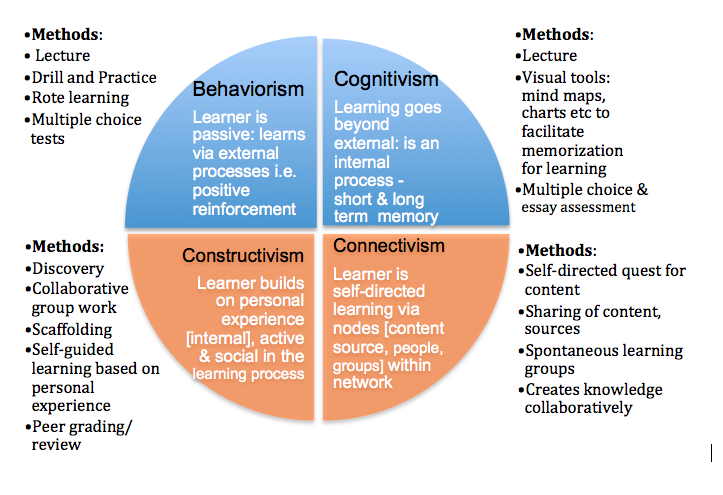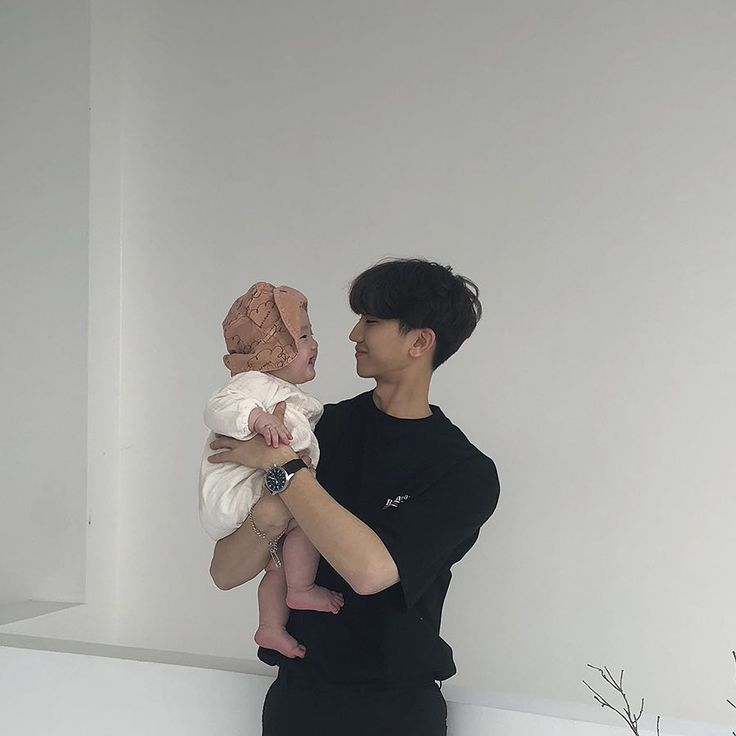How to stop an autistic child from hitting others
What should I do if my child with autism hits me?
If you’re here, you likely need answers regarding your child’s aggressive behavior. Before we dive into our tips for how to stop an autistic child from hitting, you must understand why this occurs in the first place.
Unable to express their thoughts or feelings in words, children with autism may “lash out” and hit, scratch, or bite their parents or siblings. Hitting can range from an open-handed slap to a closed-fisted punch, and some outbursts may even injure themselves or others.
Many things can trigger aggressive behaviors like hitting, scratching, and biting, but these are some of the most common in children with autism:
- Feeling very anxious or stressed
- Trying to communicate
- Being in physical pain
- Seeking attention
- Sensory overload or sensitivity
- Not understanding what’s going on around them.
Once we understand why children with autism behave aggressively, we can work toward prevention and treatment. First, we need to discuss appropriate ways of dealing with aggressive and violent behaviors in children with autism.
What to Do if Your Child Hits You
Neutral redirection is effective in how to stop an autistic child from hitting. This is an Applied Behavior Analysis (ABA) technique consisting of replacing a child’s aggressive, potentially dangerous behaviors with functional, appropriate behaviors.
With some guidance and gentleness, neutral redirection allows parents to effectively teach their children socially appropriate and safe behaviors, skills that will help them interact with peers, share experiences, and enjoy a higher quality of life. This process begins at treatment centers like Therapeutic Pathways, but can (and should) be followed at home.
As a parent or caregiver, here’s how you can remediate your child’s aggressiveness through neutral redirection:
- Remain calm.
 Remember that your child’s behavior may be kindled if you “give in” to their aggression.
Remember that your child’s behavior may be kindled if you “give in” to their aggression. - Prevent your child from making contact with you by moving out of the way.
- If this is not possible, you may need to protect vulnerable parts of your body.
- During the process, refrain from speaking to your child (scolding or asking them to stop), making eye contact with them, or reacting physically (flinching or making faces).
- Calmly redirect your child to a different method of communication. For example, if your child usually hits you to get your attention, you can instead instruct them to tap you on the arm and say “excuse me”.
- Only give your child direct acknowledgment (eye contact, etc.) when they engage in the appropriate behavior. Failing to do so could lead your child to associate aggressiveness with attention and getting what they want.
As mentioned, parents must refrain from reacting to their child’s aggressive behavior with exaggerated movements, loud voices, changes in facial expression, and other reactions that could validate the child’s behavior.
It’s important that you do not give in to aggressive behavior. If you continue to give in, your child will continue acting aggressively because they’ve come to learn that it’s an effective way to get what they want.
You can also be prepared by teaching your other children how to respond to their sibling’s aggressiveness. One of the best ways to do this is simply having the other child leave the room immediately. Your other children may react and spur more aggressive behavior, so having them walk away for a while can be helpful.
Treatment for Aggressive Children With Autism
Knowing how to stop an autistic child from hitting is key. Aggressive behavior can hinder a child’s progress at school, at home, and in social interactions. If your child has an autism diagnosis and is engaging in aggressive behaviors, seek treatment options as soon as possible.
The earlier the intervention (treatment), the greater your child’s chances of developing alongside their peers and becoming independent.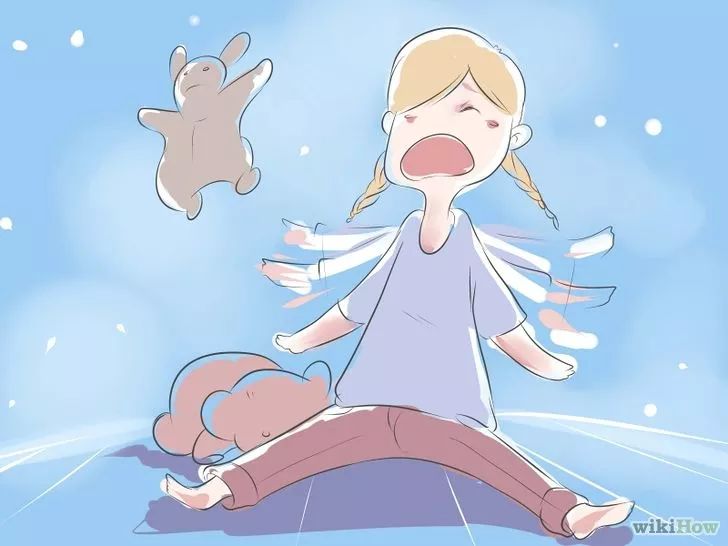
At Therapeutic Pathways, our Board-Certified Behavior Analysts (BCBAs) put together an ABA treatment plan for each child engaging in aggressive behaviors. We work diligently to remediate harmful behaviors and encourage children to engage in safer, more appropriate behaviors.
For more information and to learn more about our ABA methods, contact Therapeutic Pathways at (209) 422-3280 to see if our Behavior Center program is right for your child.
How Can I Stop My Autistic Child from Hitting?
Hitting is considered an aggressive behavior in autistic children, but it is more often a form of communication. Read on to learn how to identify what the hitting means and how to stop your autistic child from hitting.
Take these steps to stop an autistic child from hitting other people.
Understanding why autistic people hit to communicate
Invasion of personal space
Autistic and similarly neurodivergent individuals value their personal space.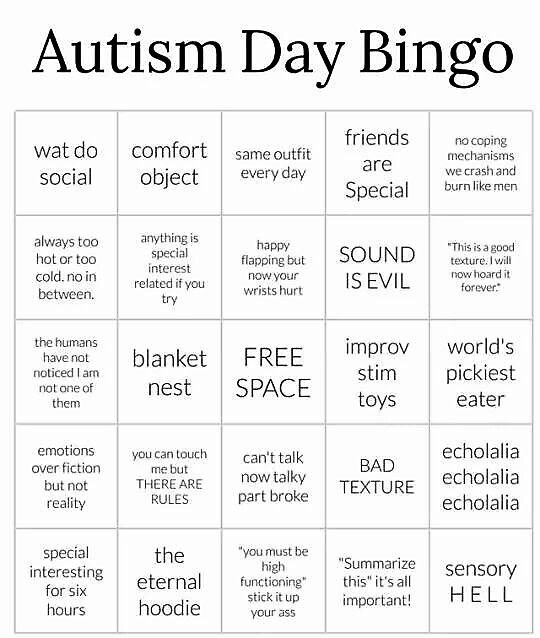 A reflex in autistic children is to push out unwanted sensory input.
A reflex in autistic children is to push out unwanted sensory input.
If you enter an autistic person’s space without permission, you have removed their autonomy. Autonomy is the ability to self-govern oneself. An example is if you tried to force an autistic child to hug you and they reacted similarly to a cat that doesn’t want to be held.
Hitting you is their way of enforcing their boundaries. From an autistic perspective, you were in the wrong and they were in the right.
Oftentimes, non-autistic parents invade their autistic children’s space during autism meltdowns or autism shutdowns. These meltdowns are perceived as tantrums because of the hitting, but it is a survival reflex.
By respecting your autistic child’s personal space, you can avoid being hit. You do not need to be right in front of them in order to make a point.
External stimuli
Autistic, ADHD and similarly neurodivergent individuals are often overstimulated and overwhelmed by external stimuli.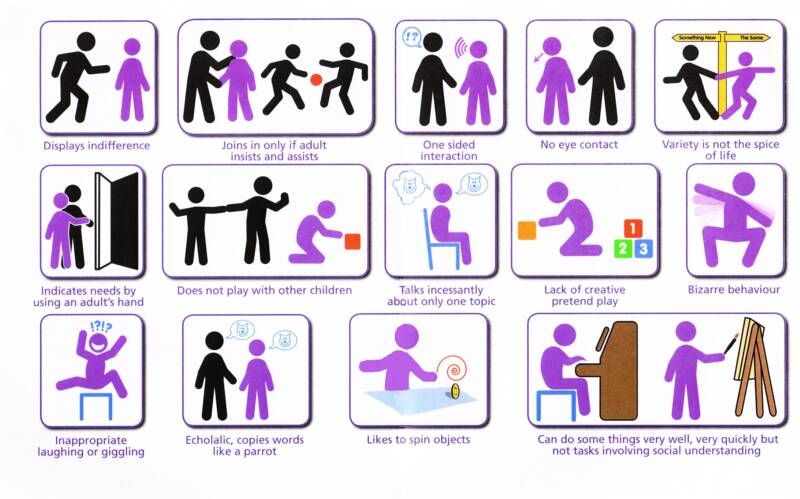
There could be an immediate sensory aspect disrupting their self-regulation, which is easy to pinpoint.
More often, however, there is a distant sensory aspect that is harder to figure out. You will need to investigate every aspect of the environment they are in where they are hitting.
At a previous job, my anger instinct was to slam my hands on the table. My office was hot, my coworkers were “scared” of my rocking back and forth stims, and the servers in the room buzzed loudly.
When I was on the sales floor, these feelings didn’t go away. I wanted to throw product, which I couldn’t do. I couldn’t do anything I needed to properly self-regulate. My issue wound up being my employer’s constant technology issues that I couldn’t fix myself.
Although it was not ideal, I had to remove myself from the situation completely in order to avoid self-injurious stimming behavior. It took me months to realize this was the top root of my issue.
Have patience, and you will eventually find what is causing your autistic child to hit. In some environments, you may be able to remove stimuli or move them to a sensory-free room where you slowly reintroduce stimuli.
In some environments, you may be able to remove stimuli or move them to a sensory-free room where you slowly reintroduce stimuli.
If the behavior is happening at school, work with their teacher to determine what is happening in the classroom overall during the behavior. Sound can set off autistic people in a snap, especially if they’re already overwhelmed.
How to redirect children with autism who hit
Don’t immediately explain why hitting isn’t okay. Wait until they’re relaxed and not hitting. Don’t require eye contact while you explain, either.
Consider sensory options like Playdough, Kinetic Sand, Mad Mattr, or Thinking Putty. It gives autistics something to hit without harming themselves or others, and without destroying property.
How to teach autistic children not to hit
Reading books that teach emotional regulation and how to identify feelings will help equip autistic children with the tools they need to communicate their needs. Since hitting is communication, you need to help them find alternative ways to communicate their needs.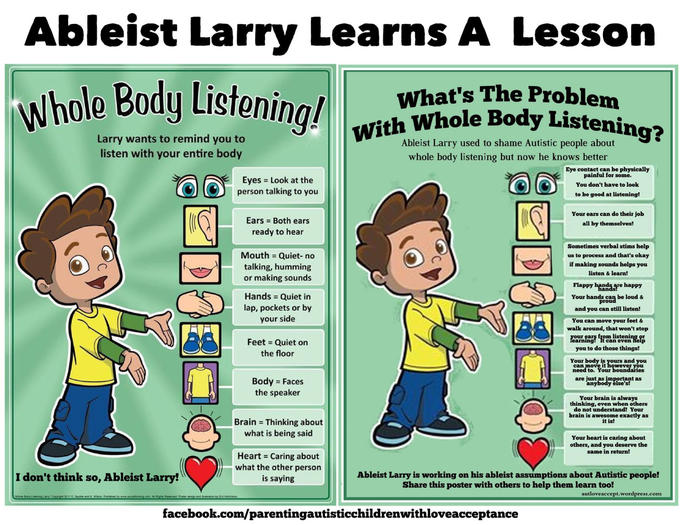
An autistic child may find a classmate’s constant jokes disrupts their senses and default to hitting, which they may have learned means to stop doing something. (This is one reason why you shouldn’t spank your autistic children, as they cannot distinguish why it’s okay for you to spank them as punishment but it’s not okay for them to hit someone as punishment.)
Figure out what stimuli is causing the hitting, since it is most commonly a reactionary behavior than something done out of malice. Then find a solution to prevent it in the future.
With everything, respect their personal space. If you get hit because you entered their personal bubble, it is on you. They could have been trying to stim, and you were too close for them not to hit you.
While autistic people may struggle with spatial awareness when it comes to them invading other people’s personal space, they do not miss the fact that someone else has entered their personal space. Stimming includes hand flapping and arm swinging, which can be mistaken for hitting.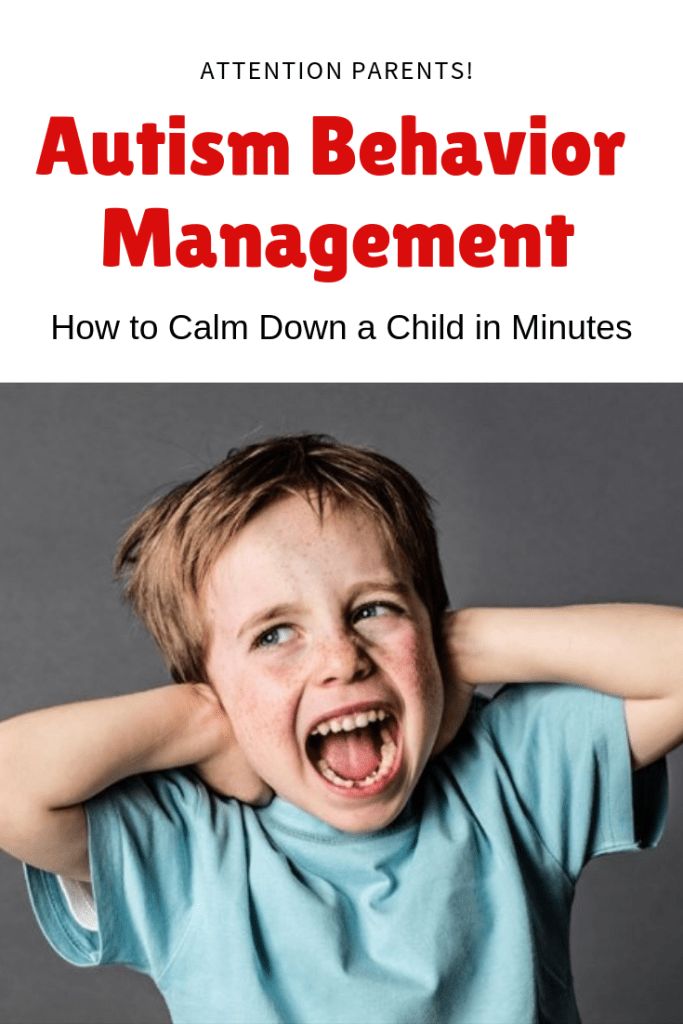 Stimming increases aggressively the more stimulated an autistic person is.
Stimming increases aggressively the more stimulated an autistic person is.
Autistic children who are hitting themselves are typically directing their frustrations caused by the above reasons inwardly, onto themselves. This is most common in autistic children who undergo Applied Behavior Analysis (ABA) therapy.
Every autistic person is different. If you need help identifying why your autistic child is hitting, comment below with your situation for a more customized answer.
How to get the right response from a child with autism? Tracy Dee Whitt '
People with autism are smart, but sometimes it's hard for parents of an autistic child to notice. When we ask our kids to do something and they don't respond, it's not because they're smart, it's because the autistic child's brain takes time to process the information. As Temple Grandin once said, "The autistic brain doesn't process verbal and visual information at the same time. "
"
When Jeremiah was younger, I spoke to him in long sentences. I wanted to treat him the way I would treat our daughter, and she understood extended sentences very well. At some point, I realized that he did not perceive what I was saying. So if I needed him to do something, I shortened the sentences to short phrases, for example: "Get off the table."
1. Use short sentences emphasizing the action you expect.
Despite the change for the better, I still had trouble getting him to do what I told him to do. When Jeremiah was three years old, a speech therapist and a child development specialist came to our house. Many times they told us that children (not necessarily only children with autism) only hear one or two words at the end of your sentence, so they suggested that we say “Get down” instead of “Go down immediately from [what the child is currently climbing ]” or “Put your hands down” instead of, for example, “Stop hitting on TV.”
.
Keep it simple.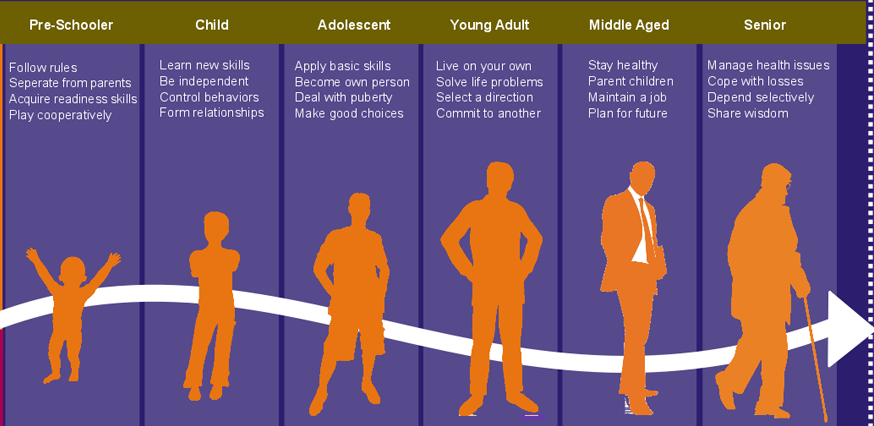 When you say "Stop hitting the TV," your child can only understand the last word: "Blah blah blah TV." While if you say “Put your hands down”, then it will be easier for you to teach him to understand what you want from him.
When you say "Stop hitting the TV," your child can only understand the last word: "Blah blah blah TV." While if you say “Put your hands down”, then it will be easier for you to teach him to understand what you want from him.
It is not necessary to use such short phrases in all your communication with your child, only when you need him to do something specific. Once the child has started doing what you say, you can move on to longer sentences and see what happens. At times, the child may ignore you, have difficulty understanding speech, or may be unable to concentrate: in these cases, you should return to two-word phrases.
2. Give the child time to process what is being said
When you ask your child to do something, wait until the child has time to understand what you are saying. Give him time to filter what you are saying. We see, hear, and perceive the world differently than they do, and they may be dealing with a variety of sensory stimuli that a neurotypical person doesn't even notice.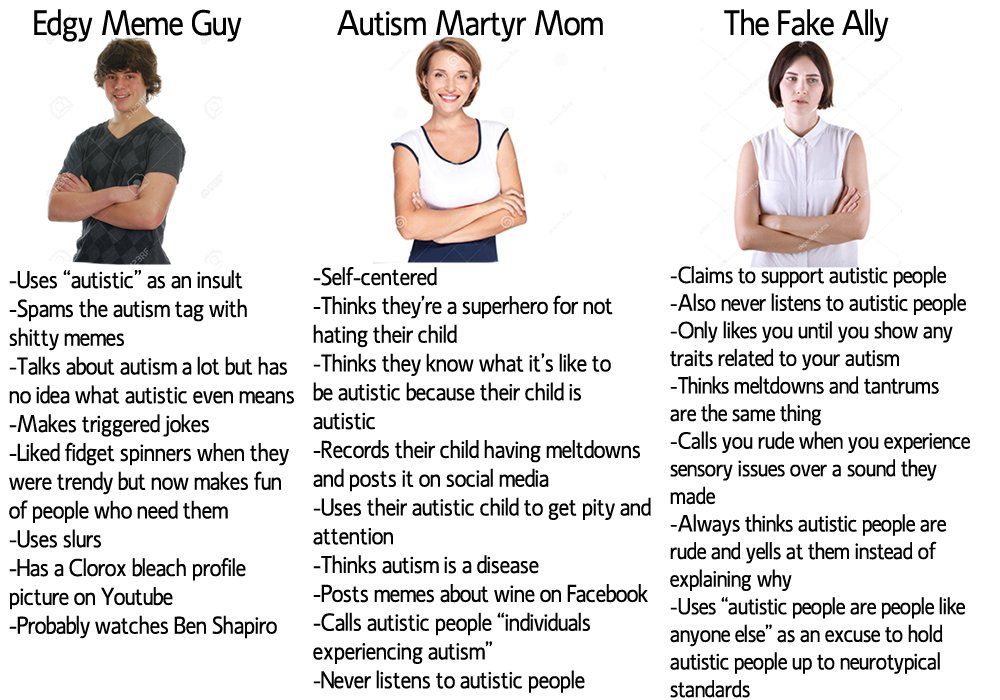 After you've said the instruction, you can SLOWLY mentally count to five or ten and maybe that's what your child needed - more time to understand what you said.
After you've said the instruction, you can SLOWLY mentally count to five or ten and maybe that's what your child needed - more time to understand what you said.
3. Move
It is very important that YOUR body move when you ask your child to do something. When your child hits someone or something, touches something that should not be touched, or climbs on a piece of furniture that is not intended for this, it is not enough to shout from the other side of the room: “Get down!” or "Put your hands away!", you need to move. Otherwise, your child will not take you seriously.
I'm not saying that you need to be rude and stand above your child's soul. Just tell your child what you want from him, in a strict but kind voice, while walking towards him. If you stand still and repeat the instructions over and over again, your child will decide that your words can be ignored and continue his behavior.
4. Use the hand-on-hand prompt when teaching your child
Hand-on-hand teaching is often effective for children with autism. This method cannot be used as a permanent control or to “calm down” stereotypes when the child claps his hands, shakes his hands, and so on. I am convinced that we must take into account the views of autistic adults, many of whom have suffered from this type of mis-education.
This method cannot be used as a permanent control or to “calm down” stereotypes when the child claps his hands, shakes his hands, and so on. I am convinced that we must take into account the views of autistic adults, many of whom have suffered from this type of mis-education.
If your child does not understand what you want him to do or has difficulty following verbal instructions, say the instruction and immediately place your hands gently on his hands and guide them. For example, if a child is being too rough with an animal, place your hands on the child's arms and gently stroke the animal with their hand while saying, "Stick gently" or "Easy." Always make sure to use the same words for the same instruction.
You might say, "But that won't teach my child good manners." You can use long sentences, say "please" and "thank you" in other situations with your child, but when you want to teach him new and basic actions, it's okay to forget about the rules of courtesy for a while.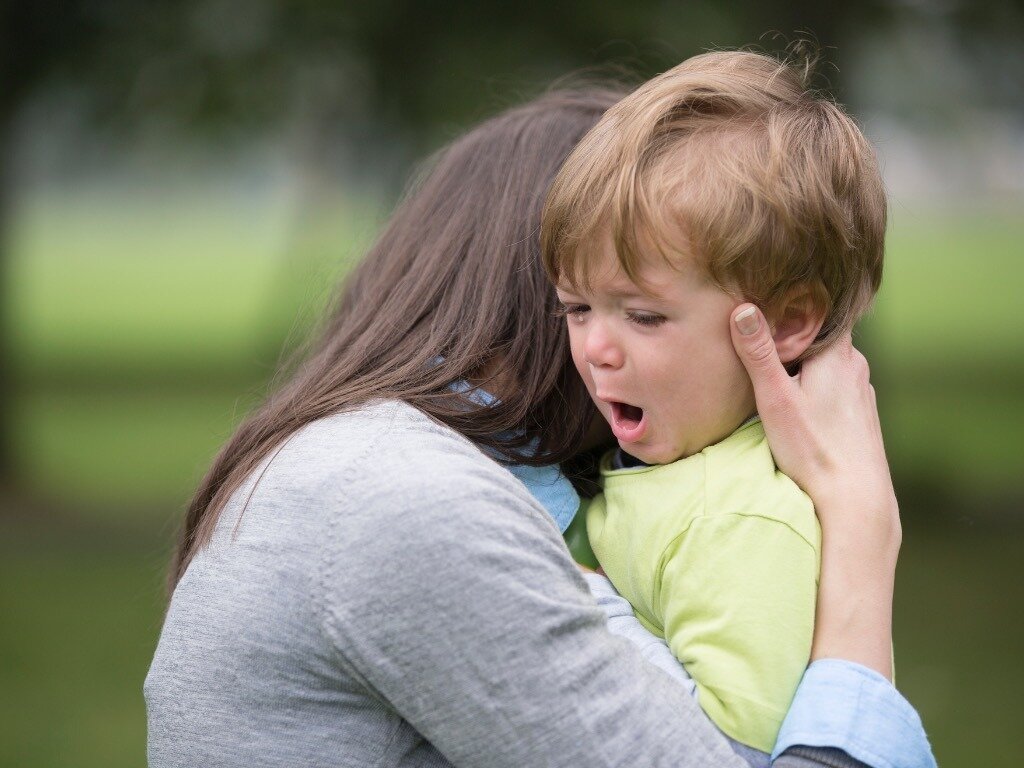
5. Be Consistent
Parents of autistic children know how important consistency and daily routines are for our children, and if not, you just found out. 🙂 When teaching your child, consistency is EXTREMELY important. It is impossible to exaggerate its importance. If you give up and let your child not do what you think is important (given his autism and sensory characteristics), then your child will return to a more comfortable behavior for himself: walking around the house with food in his hand, jumping on furniture, hit things.
I know from experience how important consistency is in our home, because when we deviate from it, Jeremiah reverts to old behavior. When Jeremiah is sick, he always takes a step back, so it's quite predictable. This is an understandable situation, but it only emphasizes the need for consistency. We get tired, family members get sick, we go on vacation, routines get disrupted and as a result, old behaviors resurface, but if you try to stay consistent, you'll help your child get back to what he's capable of.
6. Praise for specific actions and only sincerely
Praise your child for specific actions and be sincere. Praise him when he did what was required of him: "Thank you, you did it so well." Praise him even when your child is simply not doing something undesirable, such as sitting quietly at the table during lunch or jumping on a trampoline, instead of trying to run away from the yard. (Running away is not a problem per se. Autistic people perceive the world differently than neurotypical people, they hear, see and feel things that we do not notice, and the attempt to escape may be explained by the needs of the child. However, you need your child to expand his experience , played and interacted, so always praise him if he does).
Very often, children with autism are faced with so much guidance and reprimand that we just need to make sure they know when they are doing something well.
I can't speak for all parents of children with autism, but I know how often and how much I get tired.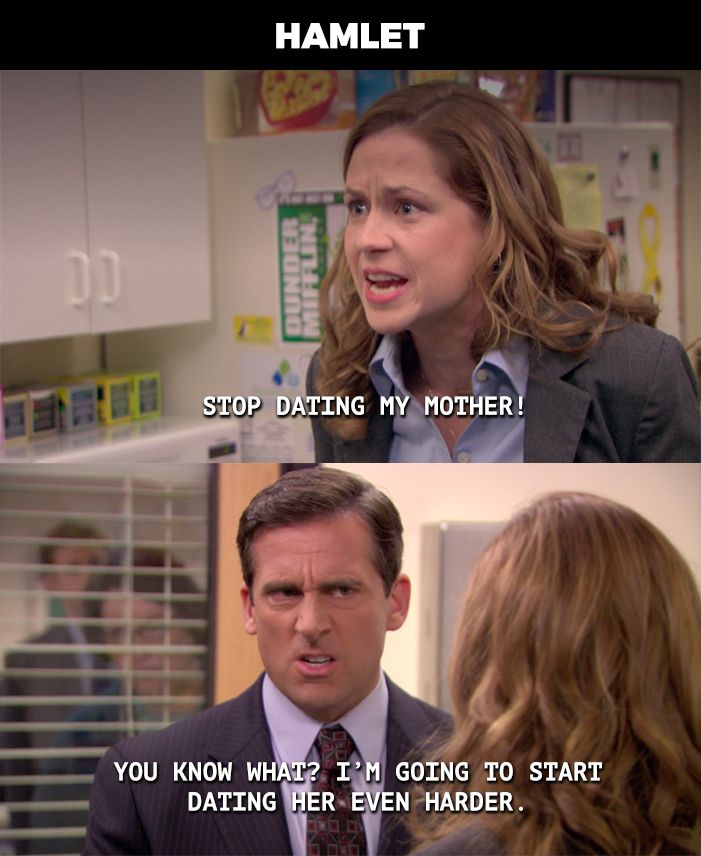 Raising such a child requires love, work, work and even more work to help him, and we can easily go with the flow and ignore the child's behavior, because at that moment we have given up. I know that I pay more attention to the child when he makes a mess than when he behaves well. We can get so wrapped up that we only start to lead and forget to tell the child: “Thank you for staying downstairs” or “You listened to me so well.” I know I have to constantly remind myself not to focus on what Jeremiah does badly, but instead focus on what he does well.
Raising such a child requires love, work, work and even more work to help him, and we can easily go with the flow and ignore the child's behavior, because at that moment we have given up. I know that I pay more attention to the child when he makes a mess than when he behaves well. We can get so wrapped up that we only start to lead and forget to tell the child: “Thank you for staying downstairs” or “You listened to me so well.” I know I have to constantly remind myself not to focus on what Jeremiah does badly, but instead focus on what he does well.
As Jess wrote in the Diary of a Mom blog: “… Always assume competence and try to understand our children, because believe it or not, they perceive, remember, store and realize everything at their own pace.”
We hope that the information on our website will be useful or interesting for you. You can support people with autism in Russia and contribute to the work of the Foundation by clicking on the “Help” button
Parenting children with autism, Communication and speech, First person
Autism: what can parents do to help their child?
The first 2-3 years are especially difficult for a couple who have had their first child.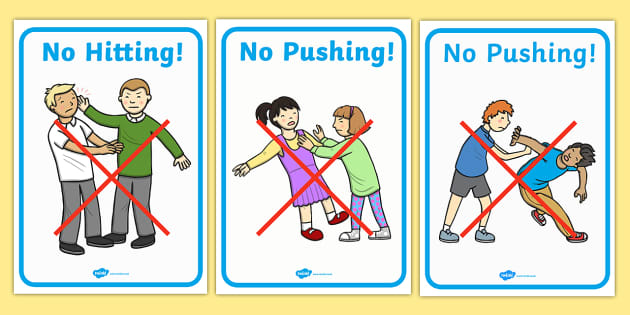 Young mothers and fathers are still learning to be parents, and it is quite difficult to understand that the development of their child is different from others. It's even harder to accept that your baby may have a mental disorder. Childhood autism, or as it is now also called, autism spectrum disorders (ASD), today occurs in every 88th child. How to recognize the disease and what should parents pay attention to? These and other questions related to autism were answered by the Head of the Department of Psychiatry and Narcology, Doctor of Medical Sciences, Associate Professor Grechany Severin Vyacheslavovich.
Young mothers and fathers are still learning to be parents, and it is quite difficult to understand that the development of their child is different from others. It's even harder to accept that your baby may have a mental disorder. Childhood autism, or as it is now also called, autism spectrum disorders (ASD), today occurs in every 88th child. How to recognize the disease and what should parents pay attention to? These and other questions related to autism were answered by the Head of the Department of Psychiatry and Narcology, Doctor of Medical Sciences, Associate Professor Grechany Severin Vyacheslavovich.
What is autism? Is this disease born or is it an acquired condition in the environment in which the child grows up?
Childhood autism is a congenital disease. The fact of its occurrence cannot be the result of such external causes as, for example, the social or cultural level of the family. The decisive role is played by the biological factor that determines the birth of such a child.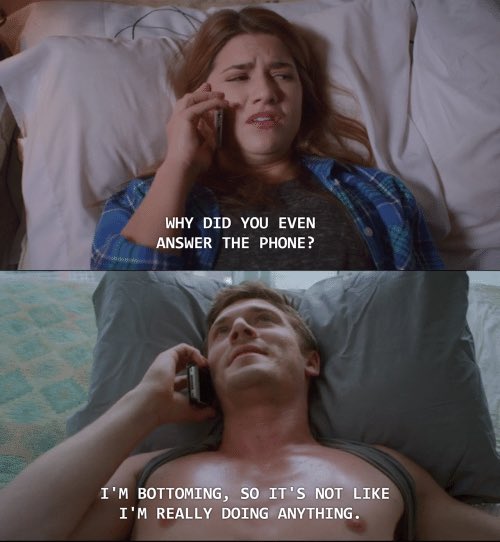 Of course, there are external circumstances that, ceteris paribus, provoke the appearance of symptoms of this disorder - a severe viral infection, in some cases even a sharp change in the family situation, for example, a sudden separation from the mother, hospitalization of the child in the hospital and more. Often an autistic child is the firstborn in the family, and parents do not yet know how the child should develop. Subsequently, they recall that they often thought about why their child did not develop like other children, but still they did not suspect serious deviations. Therefore, this day - April 2 - just calls for adults to take a closer look at the child in general and notice any anomalies in his development as early as possible. And whether this is autism or some other disease - this should be decided by the doctor.
Of course, there are external circumstances that, ceteris paribus, provoke the appearance of symptoms of this disorder - a severe viral infection, in some cases even a sharp change in the family situation, for example, a sudden separation from the mother, hospitalization of the child in the hospital and more. Often an autistic child is the firstborn in the family, and parents do not yet know how the child should develop. Subsequently, they recall that they often thought about why their child did not develop like other children, but still they did not suspect serious deviations. Therefore, this day - April 2 - just calls for adults to take a closer look at the child in general and notice any anomalies in his development as early as possible. And whether this is autism or some other disease - this should be decided by the doctor.
How can parents tell if their child has the condition?
Unfortunately, often parents do not immediately pay attention to the atypical, age-specific behavior of their child. This circumstance gave rise to some myths that autism can occur with the wrong parenting approach or after some medical interventions, including preventive vaccinations. This cannot be believed, since childhood autism also goes through a latent phase in its development, when its symptoms are almost imperceptible, but this does not mean that it was not there from birth. However, you need to know the so-called "red flags of autism", with the manifestation of which it is worth contacting a specialist. These include:
This circumstance gave rise to some myths that autism can occur with the wrong parenting approach or after some medical interventions, including preventive vaccinations. This cannot be believed, since childhood autism also goes through a latent phase in its development, when its symptoms are almost imperceptible, but this does not mean that it was not there from birth. However, you need to know the so-called "red flags of autism", with the manifestation of which it is worth contacting a specialist. These include:
- child does not use pointing gesture,
- does not make eye contact, does not smile in response to a smile,
- does not respond to his name or to requests addressed to him,
- does not hear speech, does not understand why adults turn to him,
- does not say a 2-word phrase by age 2,
- does not use toys for its intended purpose.
Often the child does not develop a plot game. For example, a car for a boy is not an image of a car that he saw on the street, but only wheels that can be turned. With the help of a toy, a child cannot reproduce the plot seen in life. In the same way, for a girl, a doll is not an image of a little man whom she can put to sleep or feed, but an indifferent object with moving parts. It is also worth paying attention to how the child communicates, whether he can follow the simple instructions of an adult, and concentrate his attention. If parents notice these features, then you need to see a doctor.
With the help of a toy, a child cannot reproduce the plot seen in life. In the same way, for a girl, a doll is not an image of a little man whom she can put to sleep or feed, but an indifferent object with moving parts. It is also worth paying attention to how the child communicates, whether he can follow the simple instructions of an adult, and concentrate his attention. If parents notice these features, then you need to see a doctor.
Is it possible to cure autism or only bring adaptation to life to a certain level? Which doctor to contact in this case?
Any specialist can suspect autism. Suppose the district pediatrician assumes that the child has autism and advises parents to contact a psychiatrist. However, it is important to understand that the final diagnosis may differ from the initial one, and there are other mental disorders besides childhood autism at an early age.
Is child autism treated at the Pediatric University Clinic?
We don’t have a separate department yet, besides, working with an autistic child is a long-term, often many-year work of a large team of different specialists, including not only doctors, but also correctional teachers, clinical psychologists and their varieties, rehabilitation specialists etc. However, we consult such children and their mothers at the stage of early diagnosis, when parents, for various reasons, are not yet ready to go to official psychiatric institutions. Thus, difficult and doubtful diagnostic cases are solved, the very first recommendations are given. For example, I receive at the Multidisciplinary Center, Vera Vladimirovna Pozdnyak takes at the Consultative and Diagnostic Center. We provide primary care to these children. We give advice on how to treat a possible disease in a child, how to behave with such children and what options for drug therapy exist. Most moms walk away grateful as they get answers to questions that have haunted them for a long time.
However, we consult such children and their mothers at the stage of early diagnosis, when parents, for various reasons, are not yet ready to go to official psychiatric institutions. Thus, difficult and doubtful diagnostic cases are solved, the very first recommendations are given. For example, I receive at the Multidisciplinary Center, Vera Vladimirovna Pozdnyak takes at the Consultative and Diagnostic Center. We provide primary care to these children. We give advice on how to treat a possible disease in a child, how to behave with such children and what options for drug therapy exist. Most moms walk away grateful as they get answers to questions that have haunted them for a long time.
As far as treatment is concerned, we do not provide it. In addition, parents, faced with the problem of autism, must understand that it is impossible to completely cure it, and they will have to accept that throughout their life the child will be special, unlike all others. There has never been such a case that the same classic autism ended in complete adaptation in society, even if the child at some stage was able to master the profession.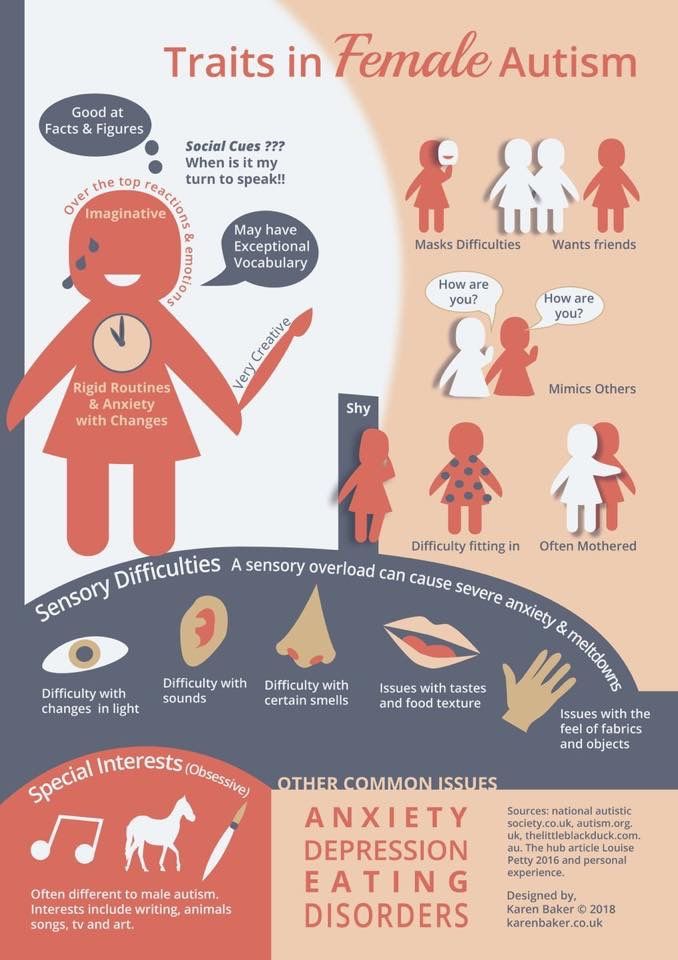 Although it is believed that with age the diagnosis of "autism" cannot be reconsidered for a child, but most of the actual "autistic" traits disappear on their own over time. And already at the age of 6-7, other problems related to behavior, underdevelopment of abstract concepts, misunderstanding of the context of communication, i.e. purely intellectual difficulties, come to the fore. In the future, parents will need to adapt the child to life with what is, including special requirements for the learning process. At home, you should also follow a special system of rules developed individually for a particular child.
Although it is believed that with age the diagnosis of "autism" cannot be reconsidered for a child, but most of the actual "autistic" traits disappear on their own over time. And already at the age of 6-7, other problems related to behavior, underdevelopment of abstract concepts, misunderstanding of the context of communication, i.e. purely intellectual difficulties, come to the fore. In the future, parents will need to adapt the child to life with what is, including special requirements for the learning process. At home, you should also follow a special system of rules developed individually for a particular child.
How can parents help their child cope with autism? Can you give any recommendations for them?
The most important recommendation, from our point of view, is to initially understand the child's capabilities, not to do too much and not to set too high goals. The biggest conflict arises precisely when parents are faced with a contradiction between the real abilities of the child and their own ambitions for him.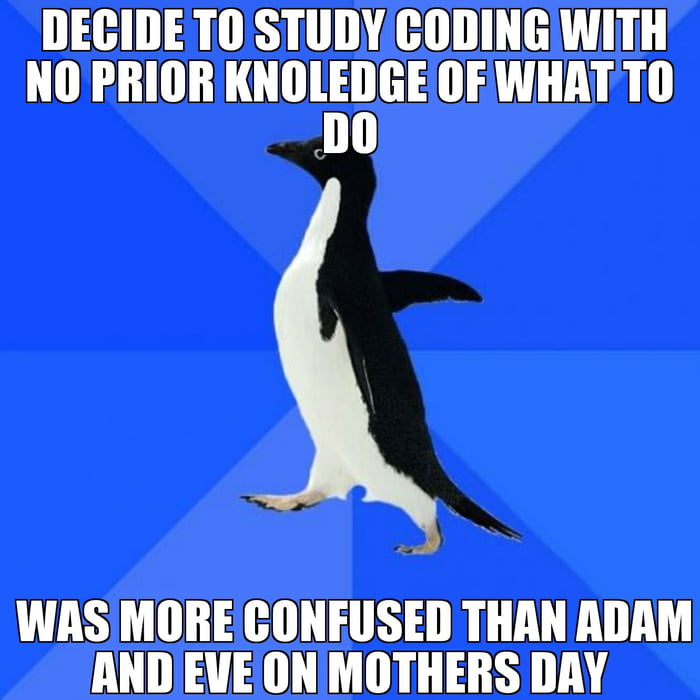 And everything negative that can happen later - protests, disobedience, experiencing disappointment and despair - all this comes precisely from this conflict.
And everything negative that can happen later - protests, disobedience, experiencing disappointment and despair - all this comes precisely from this conflict.
The main principle for parents is to gain a sense of confidence as a caregiver and get rid of excessive feelings of guilt. You need to know that an autistic child is very sensitive to the internal state of his parents, easily reacts to their anxiety, confusion. With regard to mental development, one should be prepared for the fact that it will take a long time to achieve success, even small ones. It does not happen that a child falls asleep with one person and wakes up with another person.
Another common mistake is the opinion that the most important thing for a child is to learn to talk. This is wrong. If speech does not appear on its own, then there are objective reasons for this. As soon as the prerequisites for pronouncing words are formed, the child will begin to speak independently without our help. Therefore, you should not artificially try to accelerate the development of such a child.
Is it possible to say that modern communication devices, computers, gadgets, mobile phones can develop autism in a child? And do they somehow affect children who have already been diagnosed with this disease? (Can modern technology help to socialize or, on the contrary, contribute to the fact that the child withdraws more and more into himself?)
In autism, this is neither good nor bad. There can be no universal recommendation here, everything is individual. It is important for a mother to understand whether her child is now ready to master society or whether she still needs to wait, subsequently carefully “grafting” him to life. Here the advice of a defectologist, a psychiatrist will help. True, very often the mothers of such children are guided only by their own opinion, without accepting someone else's help. This happens if their relatives betrayed them, the father left, the grandparents did not accept the child, and the mother is left alone with the problem.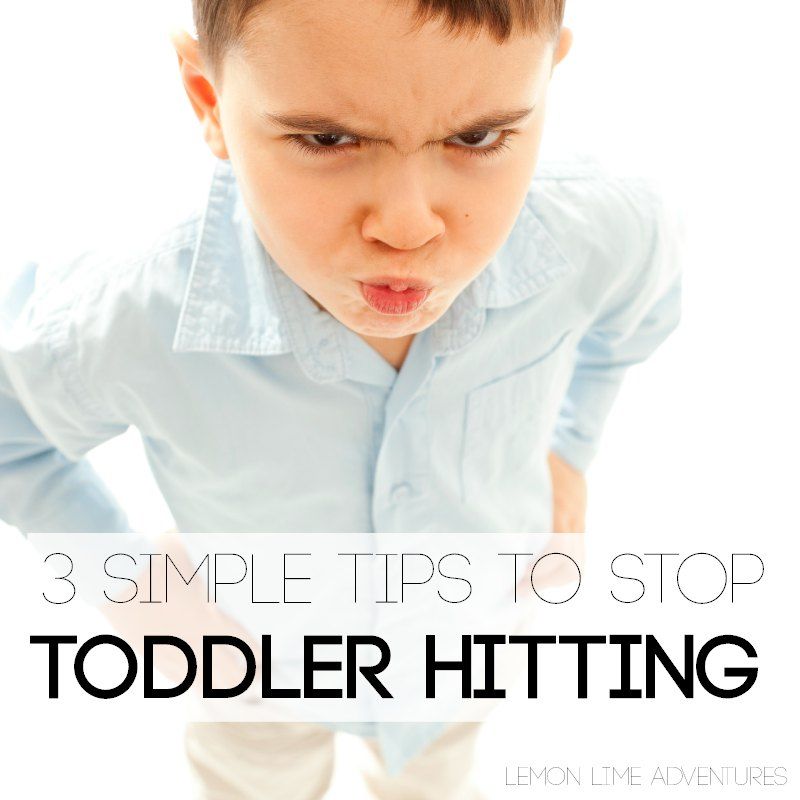
Why is autism thought to be more common in boys? And why is it more characteristic of them?
Indeed, this is a fundamental fact. And childhood autism is not the only example. A lot of mental disorders occur more often in boys. Why this is so is hard to say. There are many hypotheses for this, but an exhaustive explanation has not yet been received.
Maybe there is some relationship between the mother's condition during pregnancy and the child's subsequently diagnosed autistic disorder? Is it possible to somehow predict the birth of a child with autism? What are the medical reasons?
Mothers often ask me: “Tell me, please, where, at what stage did I make a mistake? What did I do wrong? Unfortunately, despite the fact that we live in the 21st century, there are no prerequisites to predict the birth of such a child. With the exception of the examination of the amniotic fluid for gross genetic anomalies.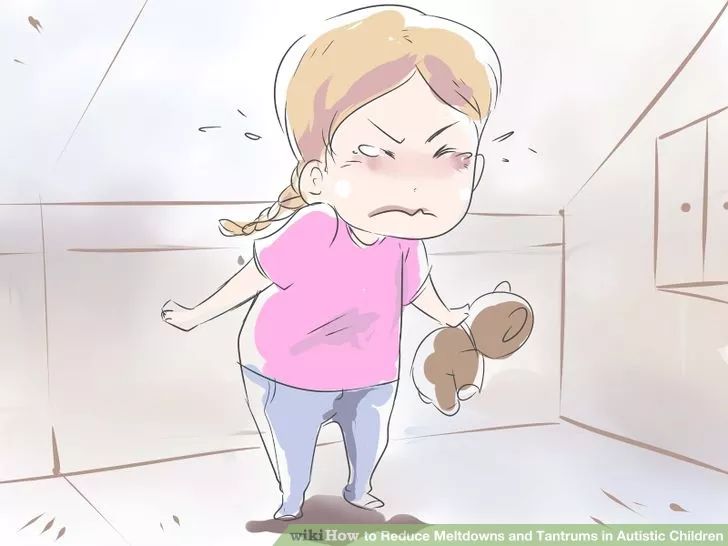 If this is observed, then we can say with a high degree of probability that a clinical picture of autism should be expected here. In all other cases, it is difficult to predict anything. There is no data for this.
If this is observed, then we can say with a high degree of probability that a clinical picture of autism should be expected here. In all other cases, it is difficult to predict anything. There is no data for this.
Is it true that autism is more common in children today than it was 10, 20, 30 years ago?
It is believed that the number of children with autism has not increased, diagnostics have improved. This happened due to the spread of information about autism and its manifestations. As a result, parents began to pay more attention to what they had not noticed before. And, as a result, the number of visits to doctors for the purpose of making a diagnosis has increased. What used to cause confusion and misunderstanding in parents, now prompts a search for answers in specialized literature, the Internet. As a result, the symptoms of autism began to be detected more often and at an earlier age. And here there is another extreme - the emerging trend towards overdiagnosis of this disorder. A special term has even appeared - autism spectrum disorders, the role of which is seen in drawing more attention of parents to any symptoms of deviant development, closely or remotely resembling childhood autism, in order to promptly apply for practical assistance.
A special term has even appeared - autism spectrum disorders, the role of which is seen in drawing more attention of parents to any symptoms of deviant development, closely or remotely resembling childhood autism, in order to promptly apply for practical assistance.
Can an autistic child go to a regular school, or is it better to send him to a special school?
There are inclusive types of education that allow such children to study in a public school. A group of 3-4 such children is recruited, and most of the time they study with a separate teacher. Periodically, the teacher selectively leads, as far as possible, such children to classes with healthy children. But the need for such classes must be considered individually. All possible consequences should be taken into account. For example, in practice, children with autism are not very physically healthy, they are characterized by weak immunity - this increases their risk of getting respiratory and other infectious diseases, which usually occur in a more severe form in children with autism.